Charting Fresh Career Paths with Sue Douglas
In this episode, Susannah de Jager is joined by Sue Douglas, Co-Founder of Veer, a pioneering journalist and media consultant turned tech entrepreneur.
Through their conversation, Sue brings a fresh perspective to the Oxford innovation landscape, drawing from her experience in journalism and her new venture, Veer—a machine learning start-up which focuses on transforming the recruitment process by shifting the emphasis from traditional experience to an individual's skills, ambitions, and potential.
Sue shares the inspiration behind Veer, her journey back into academia, and the role AI can play in uncovering career paths that align more authentically with an individual’s interests and capabilities. She reflects on her unconventional career path, her experience navigating Oxford’s start-up ecosystem, and her vision for a more inclusive, skill-based approach to work
Sue Douglas is a seasoned journalist, media consultant, and tech entrepreneur with a diverse and accomplished career. She began her career in management consultancy and transitioned into medical journalism before taking on editorial roles at prominent publications like the Daily Mail, The Sunday Times, The Sunday Express, and Condé Nast.
Following a severe horse-riding accident, Sue continued her consultancy work and, in 2022, co-founded Veer, a machine learning start-up with Professor Sir Nigel Shadbolt. Veer focuses on reshaping recruitment by prioritising skills over experience, helping individuals uncover career paths aligned with their unique talents and ambitions.
[00:00:00] Sue Douglas: If you don't know what you want to be and how would you, you can't explore according to what's in your heart and what makes you tick, what you might be.
[00:00:09] Susannah de Jager: Welcome to Oxford Plus, the podcast series that takes you deep into the myths and truths of the Oxford investing landscape. I'm your host, Susannah de Jager, and I've spent over 16 years in UK asset management. My guest today is Sue Douglas. Sue holds a first class degree in physiology and biochemistry from Southampton University. She initially went into management consultancy before moving into medical journalism and subsequently into editorial roles at the Daily Mail, The Sunday Times, The Sunday Express and in the latter part of her journalism career at Conde Nast where she launched a number of titles. After stepping back from her full time career, following a severe horse riding accident, she continued media consultancy work and in 2022 co founded Veer, a machine learning tech spin out looking to match talent with opportunities alongside Sir Nigel Shadpold. Together they are looking at the problem of talent and recruitment through the lens of skills rather than experience. I'm happy to have Sue here today to discuss her business and the experience of founding it in Oxford. She brings an entirely different perspective on how a university spin out happens, not least as she came back into an academic setting from an entirely commercial and notoriously fast paced one. I'm intrigued to learn more about her experience. I first saw Sue speak in a Mishcon de Reya event in Oxford and was struck by how atypical a founder she was within Oxford and her clear and outstanding passion for her company. Sue, thank you for joining today. So I'd love to hear a bit about your background and how you've come to found an Oxford spin out because you've got a relatively atypical path to where you are now.
[00:01:49] Sue Douglas: I think that's very important that one is atypical and I suppose if anything, I would say the easy one word answer is maverick and I've always enjoyed bridging things and seeing what might be possible with one set of demography or country or interest and thinking, how does that marry up to the other group? And can I be that catalyst? So the short answer is because I've always been intrigued in bridging and being the catalyst. The longer answer is a longer answer, but starts I suppose, geographically because I'm here, but also there's a rather delicious story in the context of particularly, this startup and its origins. When I had very little to do with actually being directly involved in Oxford, although that's not strictly true, I had gone to America to raise money for the second of my more entrepreneurial efforts and was told by a previous investor who I respected completely, Well, Sue, that's a really great idea, but you need to be a product, not a service and I came back and I was pottering about on my way into London, listening to Radio Four, being a certain age, and Professor Sir Nigel Shadbolt, the King of Innovation and whose name I knew in the context of Tim Berners Lee, had just been appointed Head of Computer Sciences and particular Artificial Intelligence at Oxford and I thought, hmm, and then the next thing that happened was that he'd been appointed also, at Jesus College to look after the fortunes of Jesus College and I thought, Hmm, second, hmm, because my ex husband had been at Jesus College as apostgraduate and I knew everybody there.
So I'm thinking the hand of God has come between the clouds on the M40 with Radio 4 and I thought these are the pieces that I need to put together back to being a catalyst. That fate has intervened and I think one should always play the cards you'redealt, bad and good and I thought, right. So off I went to see Nigel Shadbolt at Jesus College because it was easy to get in touch because I knew all the staff and he said, well, this is really interesting because I'd really love to bridge your capabilities with news as a data set and at that point we were looking for signals in news that could help companies better align with public sentiment. So off to the races. Of course, things never turn out quite as you wish. Maverick, Maverick and here I sit today with that same purpose, and capabilities and the arranged marriage of storytelling, my contacts, my capabilities with Nigel's academic prowess and brain's pipeline and so we pushed the technology that we began to develop two years ago now into a specific, very newsworthy, important social impact outcome, which was recruitment. But it's not strictly recruitment, it's about directing and navigating through a large data set of unknown, uncharted territory.
[00:05:02] Susannah de Jager: So Veer, the entity you're talking about, is so encouraging to me because as somebody who has navigated recruitment companies as they currently are, they are so experience focused.
[00:05:15] Sue Douglas: Yeah.
[00:05:16] Susannah de Jager: And I feel like it can often either write off skills that come from a previous part of your career or not even acknowledge them at all, which is such a loss both for recruiters and companies and the people who are being serviced. Can you take me through in a bit more detail how you're actually applying the AI to that problem statement?
[00:05:39] Sue Douglas: Well it's back to the origin actually of what we were trying to do and navigating large data sets. I think part of the problem with recruitment for want of a better word, or finding what you want to do, whether you're in a job already or whether you're planning on charting that direction, or you might've retired and thought, why have I done that? I don't want to be on the golf course, what can I do? So it's actually articulating and coming to terms, first of all with yourself, look at the mirror long and hard, what am I good at? What are my attributes? What are my skills? What do I like? What do I not like? And of course, these change throughout one's life, but being able to understand those for one's self is exercise number one, but then thinking, I know the bundle of things that make up me. How do I find something that I would really like? And as you've just pointed out, recruitment is very specifically targeted and empirically increasingly, I suppose the dream was successfully through AI. Ah, well, we'll just match you up like a dating app or a house searching app. But in fact, that bundle of vectors that constitute you needs to be matched up to a bundle of possibilities in that world, uncharted world of work and we are so ignorant about that world of work, particularly through the education system or our parents, if we're lucky enough to have parents with lots of good connections, Oh, well, you should be a, or if we actually have a good education, we've been to a school which has careers advice and your careers advisor sits you down and talks to you, or you can explore possibilities, but can you? Because if you don't know what you want to be and how would you, you can't say, well, I want to be an accountant or maybe you do, or I want to be a doctor, but you can't explore according to what's in your heart and what makes you tick, what you might be and I rather love the art of the possible in this context. So to define how we do that with clever tech and innovation is if you imagine yourself with all your likes, dislikes, skills, attributes from the age of the playground right through life, how do you actually articulate that? Those are vectors that I'm going to now take a bundle of what constitutes you and see how it might match up to something that is a different job, nothing that you've ever thought of and in fact, just personally, which makes everyone laugh, I took my Wikipedia entry, which of course is fairly manicured anyway, and did that as a free text query into the search engine we first cultivated and created and it came up with editorial assistant, which I thought was quite funny, or barrister and of course, if you think about it, I'm curious and I always want to make people think twice. I like the story and if I start articulating who I am and what I am, you come up with lots of different possibilities rather than think, Oh, of course, I'm going to be a journalist and that's to me, what's so appealing about it, because you don't have to have had a brilliant education, you don't have to have had, wonderful parental care or brilliant mentorship or careers advice. It's in your heart, what you might do and it's up to you and if we can do that, give you agency to find and set sail on those vast uncharted seas of possibilities and that, of course, is the essence of what we're trying to do.
[00:09:05] Susannah de Jager: It's really such a reassuring concept because as you just articulated, it's quite arbitrary, historically, whether you meet somebody that did a job, you have a conversation with somebody that inspires you, or somebody comes to your school and talks to you about something, you think, yes, that and there have always been hundreds, thousands of jobs that none of us have heard of, but that seems to even be in the modern context, multiplying and so I think it's really important that we're going to have better ways to navigate this into the future.
One of the most successful columns we had, looking back over my torturous career in Fleet Street, but when I was at the Sunday Times, one of my jobs was to apply, some of my tabloid background, in terms of more accessibility, but not dumbing down, I was told, in capital letters and underlining, the Sunday Times Magazine, which was very famous for great photography and really good journalism and we did a column, A Day in the Life of, and it was one of the most successful things it's still running, a Day in the Life of an Undertaker, A Day in the Life of a Heart Surgeon, A Day in the Life of a Podcast Interviewer and you don't know, because you're not sitting next to them and it's really interesting, people love it because fundamentally people are curious and they want to know. So if we can distill any of that kind of day in the life of, which is back to the content, if we can really rethink how you approach, probably the most important decision. It'll change and changes many times over your life, but the most important and biggest part of your life, what you do, that would be amazing. So picking up on something you said earlier, you spoke about the power of network in that you knew people at Jesus, you were able to access, you obviously have a huge amount of credibility from your career, that means that somebody would take that meeting. That's not necessarily available to everyone that might be interested or have a great idea. So when you look at Oxford and the opportunity here, do you think that more people should be coming in with their ideas? Do you think it is more open than people might perceive, or should it be?
[00:11:14] Sue Douglas: I think it should be and always could be and in the past perhaps has been long, long distance past more than is now.and it's a very good and important question. It's trying to, again, pin down, what is the use of what I'm doing? How can we apply this? And then without sounding incredibly arrogant, can we do things better? Can we actually disseminate some of these ideas for the betterment of everybody?
So you do in a way have to have that elitism and that expertise and that, Oh my God, the cleverest people with the most amazing machine learning or medicine, and what happened with the development of the vaccine, that it could be a center of excellence. But then you needed the bridge to make sure that it was adopted within the big pharma company and then distributed and that's how you really make change. So you need thatchain to make it happen and in many ways, I think, the Oxford, Cambridge Legacy, the Harvard, the Stanford. There are always those elitist places, but as long as they're not locked up of gilded cages and as long as those doors can be opened by naughty mavericks, like us, then that's all to the good.
[00:12:30] Susannah de Jager: I mean what you're describing is effectively a one woman venture building campaign that you launched outside of a venture builder, which I love and what's so encouraging about that is, potentially that is more available to people than they think and by the way, they probably need to come to Veer to get their skillset mapped, to articulate to their academic partner.
[00:12:52] Sue Douglas: Well, let's hope that is the case. But I think again, I made, you know, back to bigger picture things, Nigel laughed originally, because of course the skills, if such they are, that I'd acquired through a long and often not distinguished, fired many times, media career, were very much sort of distilling what the zeitgeist was, being nosy, listening to people, trying to understand what's going on. What's, who's that over there? What's happening over there? Why? It's that why, it's that naughty child in the back of the class saying, please miss, why? And if you can actually kind of entrap that and apply that to the world, why do I have to be this? Why can I not be something else? So it's making a living, sure, but it's also doing something where you're valued and I think that there are several things, again, going back to your point about exploring how can I be more valued with the skill sets I've got, look at the terrible mental disease that we're articulating at the moment and that we're talking about that we are genuinely picking up and probably more affected by than we have been in, I don't know, centuries. Why? Because people feel dissociated, they don't feel valued and we've got a kind of topsy turvy set of values. So I think being able to find something where you're valued isn't just making a living, earning a living, finding your future. What do we call work? Work. You know, in The Right to Work, I've just been involved with another Oxford project, the right to work for women in afghanistan, who are basically being locked up. There's a song that they've just released, which is amazing. Oxford saved a lot of these female musicians, young girls who were just then suddenly, no, you can't go to music school, you can't go to school at all, go home and they've done this anthem to women, but it starts and I, because I don't speak any of those languages, with the word bread, then the next word is work and the next word is freedom and in a way, your work is your bread and it is your freedom, if we can make it that and it issomething that is wonderful about life, not something that's a necessary chore and it's almost been denigrated to be that and I think if we can kind of reboot that wildly, ambitiously, then that would be amazing.
[00:15:18] Susannah de Jager: Yeah, it's interesting, there's two ends of it. You've just articulated basic human needs, how you can build everything upon the ability of being able to work to move yourself beyond your circumstance and then at the other end of the spectrum, if you look at Maslow's Hierarchy of Needs, once your needs are met, one of the most important things for mental health in developed nations is to do valued work, but also that it aligns with your values and so at both ends, it's exceptionally important that we find a way to help people identify the work that will serve them and allow them to serve.
[00:15:55] Sue Douglas: Serve us in the same way as us being society back to Cameron's Big Society and then I think it was him again, I don't know, did that happiness factor and we all thought, ugh, God. You see, work isn't about happy, happy and going off to have a great fun time, it's about being content and being valued and actually making something out of it that can make you feel that you've achieved something as well. So on lots of levels, I think we have to redefine work.
It's the attitude towards work but the AI I've got isn't an elastoplast to just find you a job more quickly because you're in a desperate panic and a better match, it's about you being able to be intrigued by what if I could do that and you might like work. It's probably one of the most important things, for me, I could have been doing and in Oxford, because of its status, because of its respectability, because we genuinely have something there that makes it already something that people are going to look at. It's so hard to really change things without having those good cards and there's a few aces in the few cards I've got on the table.
[00:17:05] Susannah de Jager: And so you brought this very naturally and graciously onto Oxford, which as we know, it's a world leading institution, does have all of that extraordinary brand that it can bring to any business. There's so much here, but coming from a business background, what has surprised you the most?
[00:17:25] Sue Douglas: The desire to make Oxford spin outs and Oxford ideas have currency is great and it's tangible and it's there and there's lots of organisations within the Oxford panoply of, quangos probably, that set out to do that. The trouble is, and there is a problem, it's quite often hijacked by people in charge, people with reputations at stake, people with far too many other things on their plate and it's not allowed to be almost worker bee like, we really need to be doing this and in my limited experience of it, could do better, but on the right tracks and I think it's great that there is a real effort and in so many different ways Oxford has and is changing with the times. I was involved with Oxford Medicine, for 10 years and on the medical board, after a very bad horse riding accident I had, which could have left me in a vegetative state for a long time. But someone believed in me, back to the human thing, who was head of Oxford Medicine, I was just very fortunate, again, the luck, but also who you know and contacts, said to me, not only do I know you can get over this, but there is no particular treatment you've got to believe, these are almost religious words. It's a very strange thing to be told when you think, I just couldn't do my job at the time after the accident. At that point I was running new business for Condé Nast and had a lot of big projects, I'd started a new magazine, I'd started Vogue. com and I was starting a contract publishing business and I couldn't even remember anyone's name because I'd lost my short term memory. So he believed that I could do it and he put me on the Oxford Medical Board and I was surrounded by really interesting different people who then moved Oxford's fortunes in medicine. Oxford's, supposedly legacy wise, the arts. Oxford knows this is the eighth year running in the world that it's above, for medical research outcome, above Stanford, Harvard or Cambridge and you think it is possible. It's possible with the right people and there was a mixture of philanthropists, big pharma executives, hedge fund money people, but medicine as well. But most importantly, there were a couple of people who were good at telling the story and John Bell, of course, is one of them here at Oxford and in a way, I think with all of this, that ability to bridge needs a pied piper, it needs a person who can tell that story and there, in each of the different disciplines, whether it's finance or medicine or any of the other arts famously in the past, there's been a voice and I think that needs to happen. Maybe it did a little bit with Harvard and Larry Summers appointment there certainly pushed a lot of really savvy business acumen. It's almost like we need that, but you know, who am I to say those things?
[00:20:30] Susannah de Jager: So I'm not going to ask you to be overtly political, Sue. However, it seems interesting what you've just said in light of the fact that we are about to have an election of a new chancellor for the university, which is a 10 year, you know, a proper, a proper commitment and a time period in which a lot of change can be affected and impact can be made. What are the qualities you think would be most important in a future chancellor for the university? Bearing in mind...
[00:20:58] Sue Douglas: I have a friend who is not the most predicted, winner, amongst the candidates and I think you might. Butit's about driving this forward, it's about always reinventing a great institution, it can't be a museum piece, it can't be put in the archives when nobody wants that anymore. It's got to be something where you can see that future alive and not force it, but just see it from who is Oxford? What is Oxford? It's bright ideas, what I love about living here is all the time it's regenerating and rejuvenating and I think if we could have someone who could see that rather than saying, this is what we've got to do, this is the route stop. It's about actually involving all the cliches that are probably devalued because they're so overused, but inclusivity about involving people and the burgeoning intrigue and interest in the Oxford students themselves, who are purportedly, and let's hope the next candidate can do this, really come from a very diverse and different set of backgrounds and we all know that they up to a point really haven't, although that's beginning to change, but it'll be really hard, really hard to change it and sometimes you have to be careful what you wish for, within my own career, you know, of being a woman in Fleet Street, was I really bringing very female, different attitudes to a very male world? And I look back and I think sometimes I was behaving like a surrogate man, so I didn't change anything and that's scary, yeah.
[00:22:37] Susannah de Jager: I think you shoehorn yourself into the shape you're being asked to fit.
[00:22:40] Sue Douglas: That's exactly it and I think whoever takes on that role, might have the brightest, wonderful ideas of the future of Oxford, which is what it should be. Not the museum, the wonderful legacy, the heritage, the beautiful buildings, the famous names, the statues. it's about the energy that it can be and that's so hard to harness.
[00:23:02] Susannah de Jager: So bringing it back into the more immediate, in your experience as a co founder with Sir Nigel Shadbolt, what have been the things you've really benefited from within the Oxford ecosystem and what are the ones you have felt you wanted more from?
[00:23:19] Sue Douglas: So the benefits clearly are the brightest brains and the freedom to say what you think and I sometimes, again going back to what Veer is, think that human resourcefulness is extraordinary and I'd love to say, oh, anyone could go to Oxford, of course we don't want them to, and they don't want to either, importantly. But anyone can find something that they love and I've benefited from being here because I have a lot of like minded people who love being able to further great theoretical or research based ideas to the next stage. It's like the clinical trials of how do we make any of these ideas benefit the wider world and I think there's a very real sense of that here, probably always has been. It's slightly do goody element, which I'll always laugh at when I go, I'm a bit of a theatre buff to the National Theatre and you look around you and you think, yeah, well, you all read The Guardian, you're all eating muesli for breakfast and you're all clapping at the same things, but it doesn't matter, it's about that club and then can we get that outside story or like with the National Theatre, cleverly find that play that is different and it's that again, maverick mix that intrigues me and so Oxford is expectedly fantastic at so many things and is, as I would always expect, really moribund and arthritic about some of the other things and you're ripping your hair out. I'm a deadline queen, I want everything yesterday. Uh, no, maybe next term, oh, let's have a think about that.
[00:24:51] Susannah de Jager: And so, to that point of things don't move at the pace that you would want and hope and it's not geared up with the same expectations that you have from journalism, Are there things structurally that Veer could have benefited more from or that you think that you would like to see?
[00:25:08] Sue Douglas: With Oxford, it is fundamentally there still for that idea of exploration and daring to push those frontiers and not being hidebound by thinking how is that going to be useful for the immediate needs of the ring road. So I think, there does need to be more work done. I don't really know quite how that can happen, as I said earlier, it needs leadership. It needs vision about moving it on from, a great seat of learning that can attract some of the most talented people. But in a way, the talented people themselves and the youngsters, if you give them agency, there's a couple of, you know, again, I would have, as an undergraduate, thought, oh, for God's sake, I would have been in the pub while they were doing their Entrepreneurs Club. But so I've benefited from the Entrepreneurs Scheme in Oxford, and there are a few, and they're busy thinking, how do I make money? Usually it's about money, of course, but sometimes it's about how do I make real change and actually, probably increasingly, there's that interesting, not necessarily great bedfellows of the two and so there's a number of schemes, the Tosca scheme we've benefited from, and we have actually, our operations director is a poster child of that. He's Chinese, second generation, British. So his parents live in Manchester and, came over here and don't speak particularly fluent English, so sometimes he has to go back to be translator for mum and dad and he was, we met him through the Tosca scheme at Oxford and he is wonderful, but totally motivated to be that person and for a lot of youngsters that I had met not through that, they're lost.
Coming back to Veer right now, what stage are you at? You spoke about the investment from Reed, the partnership with Reed. What are the next kind of six months looking like for you guys in your business?
Scary, the economy is scary, politics at the moment, scary. What it looks like at the moment is we have a secure, short runway with Reed.Reed became, a significant, well, our first investor and client a year ago. All those sort of amazing jobs, but the Reed job set, data set, was more about middle England, middle class, middle aged jobs. We are being deployed in three potential different iterations within the company as a client. So revenue in, within, just over a year, which is great. The actual cash they put in, we've got like one and a half months to go. However, we have got money coming in now on the bottom line and we've got another really interesting different iteration of the same type of coding and expertise, not related to recruitment. So some of the guys who've joined us are thinking, well, hang on a minute, I thought I joined Veer. Well you have, but it's veering off the straight and narrow in actually really challenging, asset management and how we invest based on hopefully value rather than momentum, now. It's using...
[00:28:18] Susannah de Jager: That hasn't paid for a while.
[00:28:20] Sue Douglas: So we've got again, a client and investor in that. So we've got a bit more of a runway. So I don't have to go screaming around thinking where's my Oxford angel investor or help, where's my VC, which is the cold light of day, really tough at the moment and I know that I think it is a strategic investor we need and it's people who want to get the long term, let's really make change. I couldn't be at a better place in Oxford, but how I find that partner in crime, that kindred spirit is hard. That's back to how do we marry? Here's the tech, here's the determination and here are the contacts and the bravery of the maverick co founder with Nigel saying, take a risk in a world that's increasingly certainly our capitalist world, risk averse, take a risk. We can do things differently. You're not going to lose a lot here because I'm not costing a lot. It's about how do we make that difference, baby step wise with a range of strategic investors, partners, collaborators.
[00:29:24] Susannah de Jager: And in that regard, Veer is, I think I'm correct in saying, atypical again from what people would characterise as a classic kind of Oxford spin-out.
[00:29:34] Sue Douglas: Yeah, it is.
[00:29:35] Susannah de Jager: And we spoke to somebody actually on the last interview, Lily Elsner, who's doing Jack Fertility, which is a postal sperm test, which is a great idea, going direct to consumer and she was saying how hard it is to articulate that to investors too, because it's just less on their patch and you've narrowed the people that you can speak to.
[00:29:53] Sue Douglas: I love it and I love the fact that, again, it's a woman saying, well, how do we do this? Because it's short of standing up on a soapbox at Hyde Park in ye olde days, which was, pre the internet and you would go, this is amazing and then you start talking about it on your soapbox and a few people come and it starts to rain and they might go away and if it's really amazing, a few people come again and again and again, and it's spreading that word and it's finding a means to inspire people. This is a great story. I want to get involved. It's that momentum, not value. Yes, but if it's value and momentum and numbers, that's well, actually the media is and distribution of ideas and storytelling has been hijacked by just in the numbers game, which is awful. But that's another story. But I think Oxford's such a good potential for us. I've never doubted that, but again, it's about using our brain's pipeline to be different, to think differently about how we do it and that VC world, believe me, I flirted long and hard with it over the last few months and the cold winds of, have you seen what's happening in the economy? Yes, are beginning to be felt and it's going to be tough and people don't want to take big risks and yet in the same moment, it's almost like social impacts come of age. How do you marry those two?
[00:31:12] Susannah de Jager: Well, I wish you much luck with that next stage because I think it sounds so important, but I hear your difficulty. It is difficult out there, one hears that from lots of people and as we said earlier, with people job searching, just the same for investments, people quite like a square peg in a square hole and so you are a bit there, not looking quite for needles and haystacks, but looking for the right partner and it's so important.
[00:31:38] Sue Douglas: It is and in the end, I do think there's a momentum about these things and I do think that the, you know, the story of all the young people that, the older learned professors and administrators have to listen to because it does change all the time and the needs of where they've come from and what they reflect as a zeitgeist, which once upon a time I was hopefully quite good at spotting. That moment they represent and so all the time Oxford can, if it's open enough, reinvent itself and that includes how it harnesses some of these amazing ideas like this other one you've mentioned, and how it helps facilitate that early, very essential funding. It's like parenting, it's not a question of, do I get a quick return on this? It might be, there might be some wonderful ideas on that basis. But some of them are longer, real game changers and we have to be able to see that too from somewhere like Oxford.
[00:32:36] Susannah de Jager: Thank you, Sue. I think that's a really good point to finish on.
[00:32:40] Sue Douglas: Good.
[00:32:41] Susannah de Jager: Thanks for listening to this episode of Oxford+ presented by me, Susanna de Jager if you want to stay up to date with all things Oxford+, please visit our website, Oxford plus.co.uk and sign up for our newsletter so you never miss an update. Oxford+ was made in partnership with Mishcon de Reya and is produced and edited by Story Ninety-Four.


More episodes+
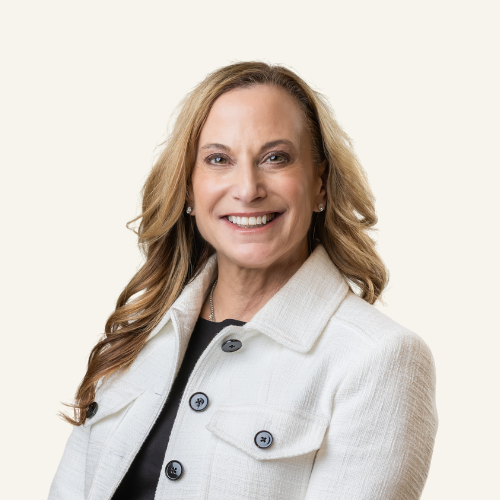
Building a £10 Billion Vision: Inside the Ellison Institute of Technology with Lisa Flashner

The Multiplier Effect: Funding Companies, Ecosystems, and the Future of the UK
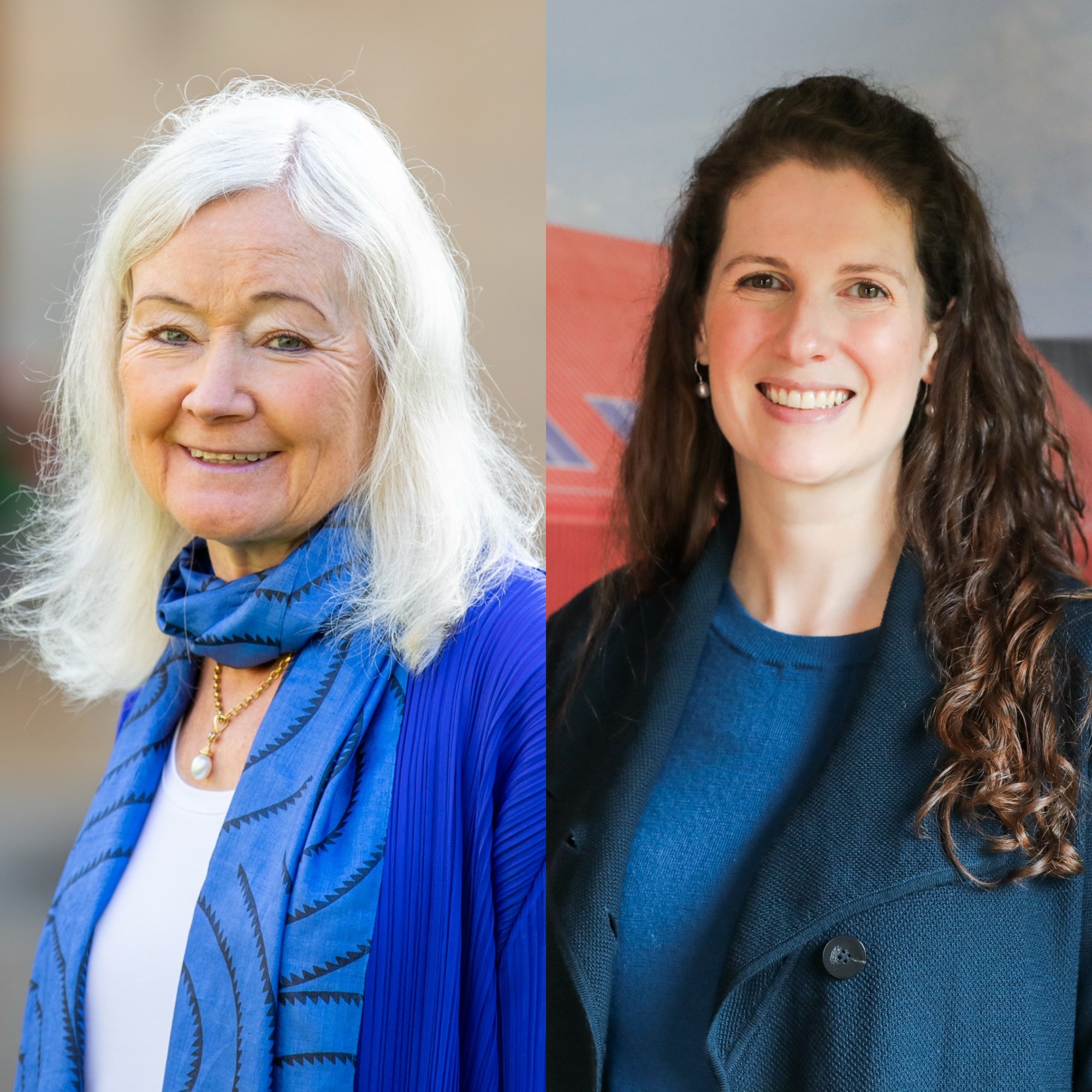
Oxford North: The New Innovation District in Oxford
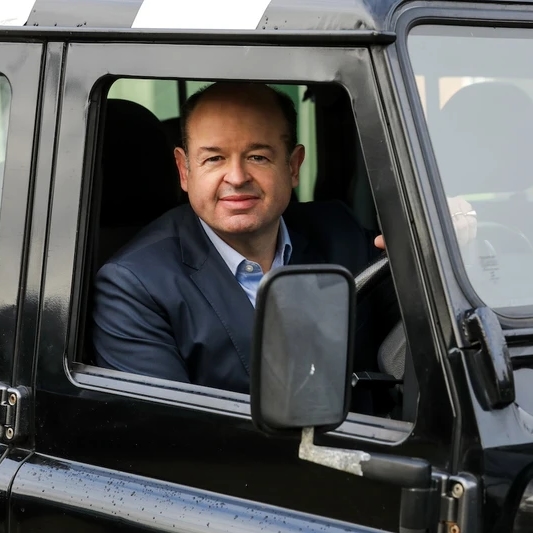
The Cluster Effect: How Bicester Motion is Driving the Future of Mobility
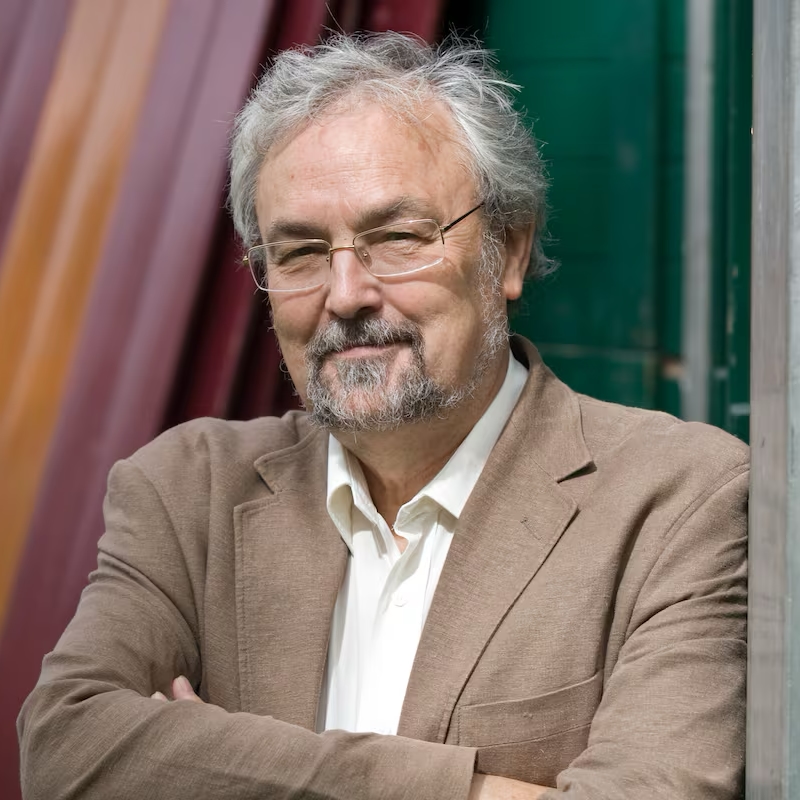
The Psychology of Scaling Companies and Teams with Professor Robin Dunbar: Part 3

The Psychology of Scaling Companies and Teams with Professor Robin Dunbar: Part 2

The Psychology of Scaling Companies and Teams with Professor Robin Dunbar: Part 1

The Future of Genetic Medicine with Zandy Forbes, CEO of MeiraGTx
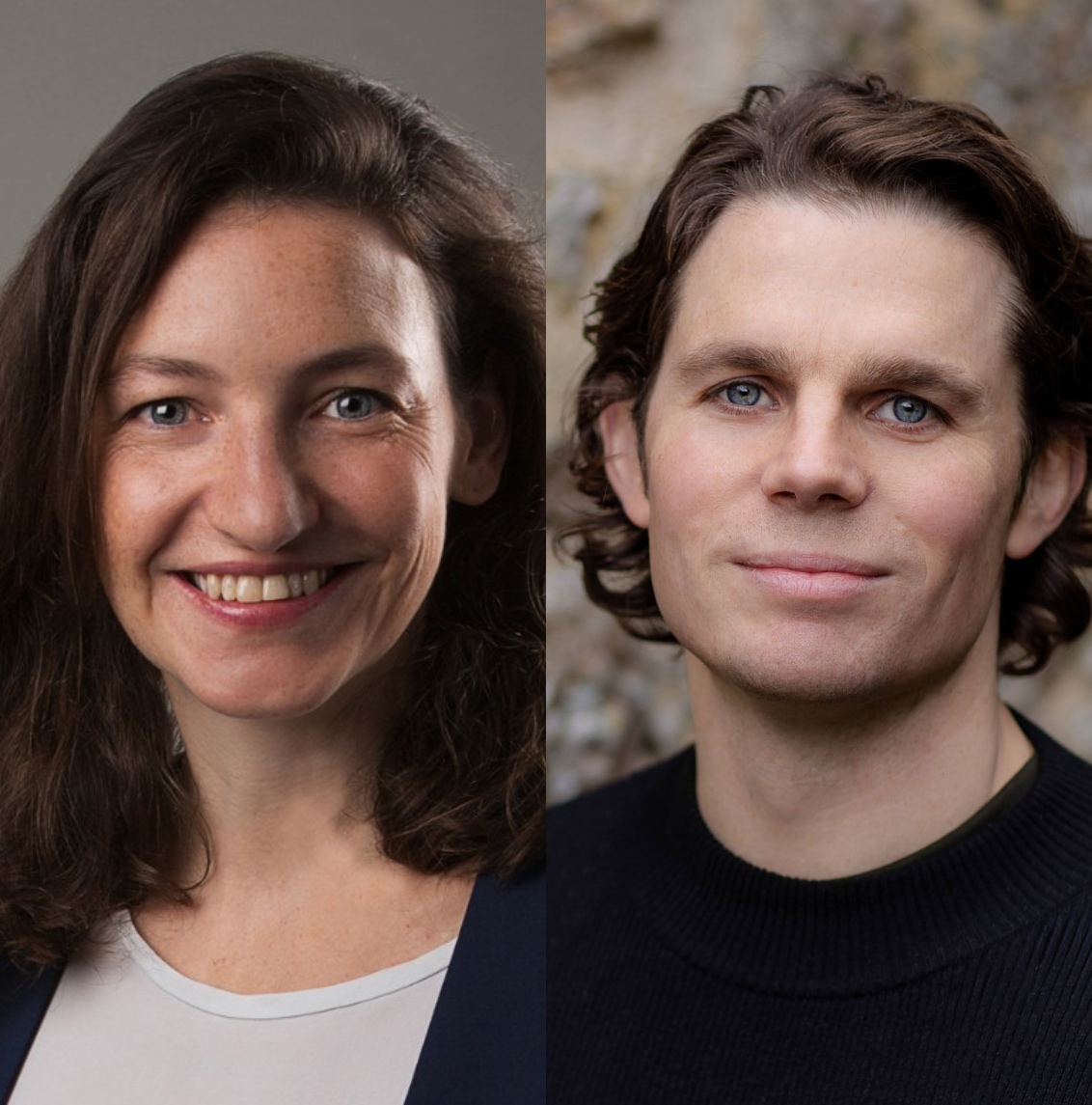
How Founders Pledge Uses Data to Maximise Philanthropic Impact

The Oxford Trust at 40: How Innovation and Education Power Oxford's Future

Can Sirona Rival Ozempic? A New Chapter in Obesity Treatment with Camilla Easter

Aligning Founders and Investors with David Mott

Building Billion-Pound Outcomes with Jack Edmondson

How Machine Learning in Oxford Is Transforming Medicine Worldwide with Lionel Tarassenko

Bringing Science to Society with Molly Stevens

How Oxford University Innovation Bridges Science and Business with Mairi Gibbs
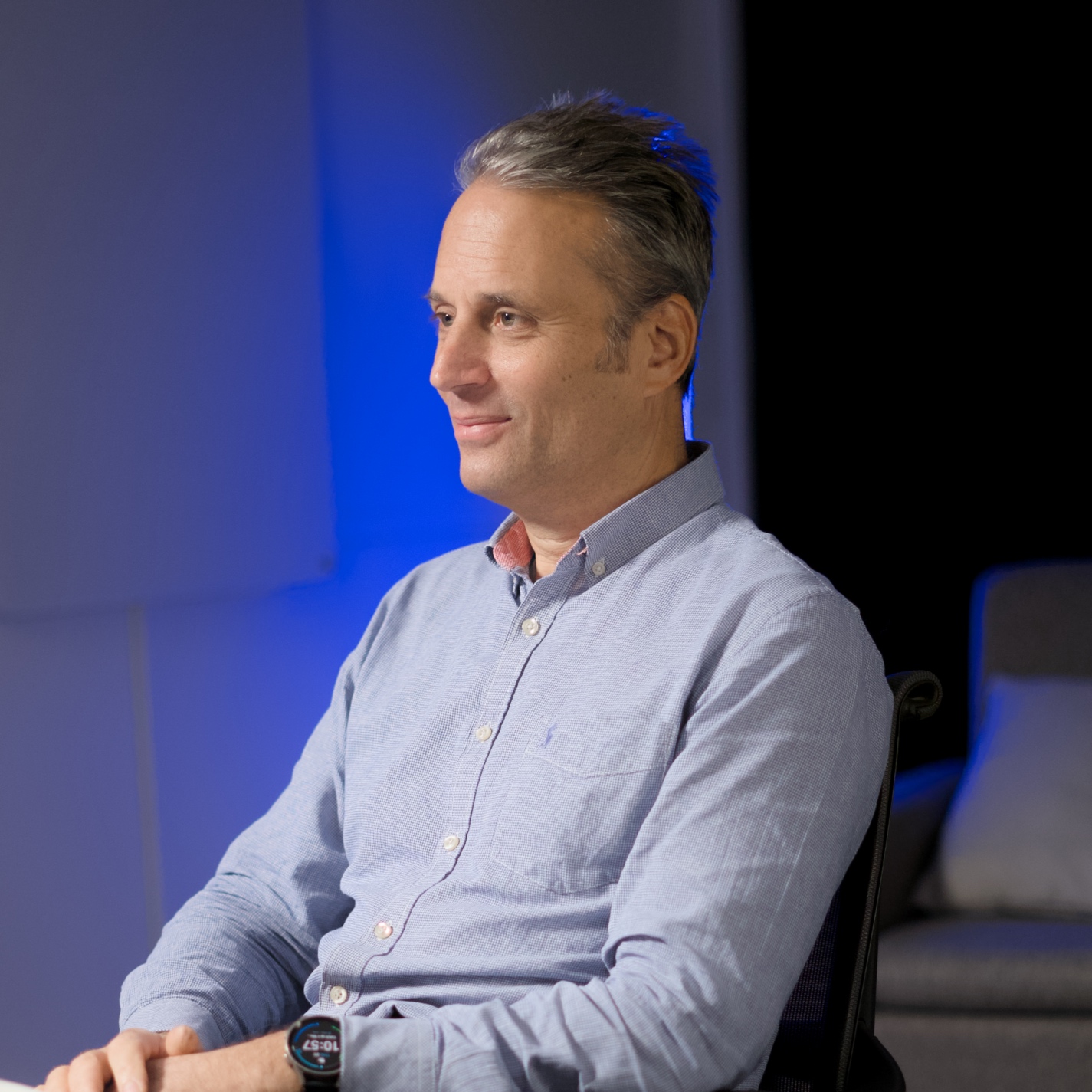
What Formula One Teaches Us About Startups and Success with Adam Parr

Risk and Reward in Early-Stage Tech Investments with George Robinson

From Oxford MBA to Startup CEO with Lily Elsner

Navigating Market Dynamics with Marcus Stuttard

Harnessing Local and Global Talent with Sarah Haywood

Navigating Capital Markets with John Derrick
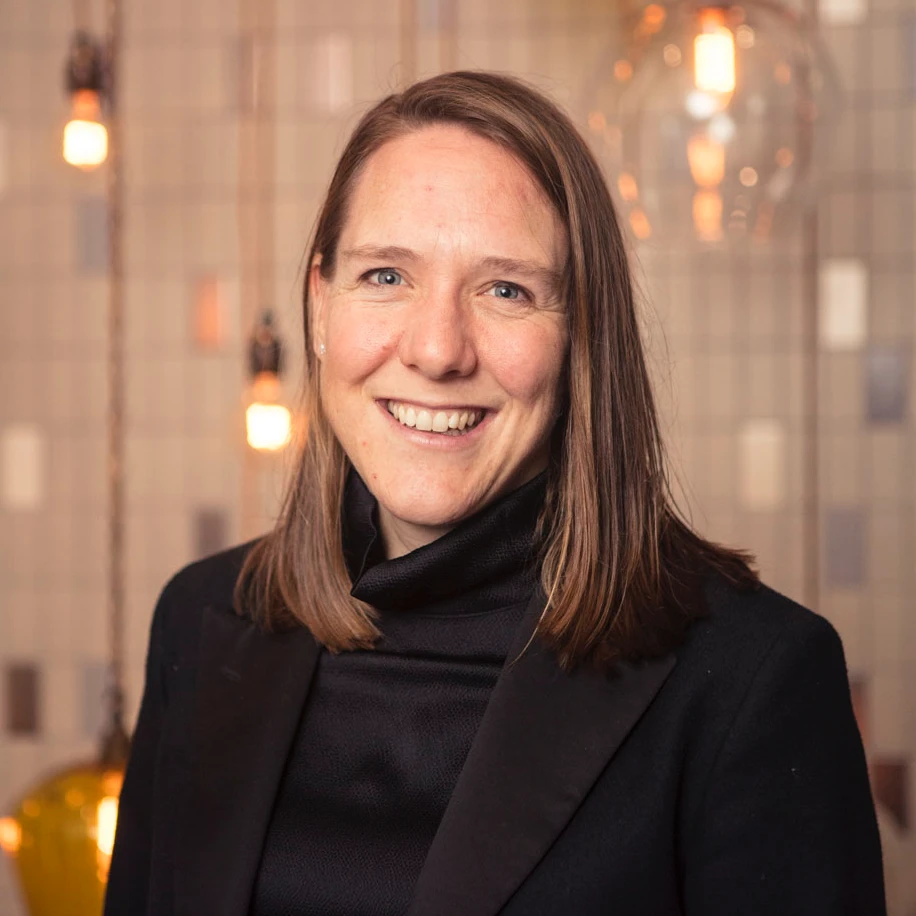
Building Oxford’s Future with Anna Strongman

Breaking the Myths Around University Spin Outs with Irene Tracey

Navigating the Future of Oxford Sciences Enterprises with Ed Bussey

Oxford's Role in the Next Industrial Revolution with Dave Norwood

Diversifying the Investment Ecosystem with Rowan Gardner

Pension Investment and the Mansion House Compact with Nicholas Lyons

Lessons from the Motorsports Cluster with Mark Preston

From Research to Reality with Cici Muldoon

Nurturing Founder-Driven Ventures in Oxford with Peter Crane
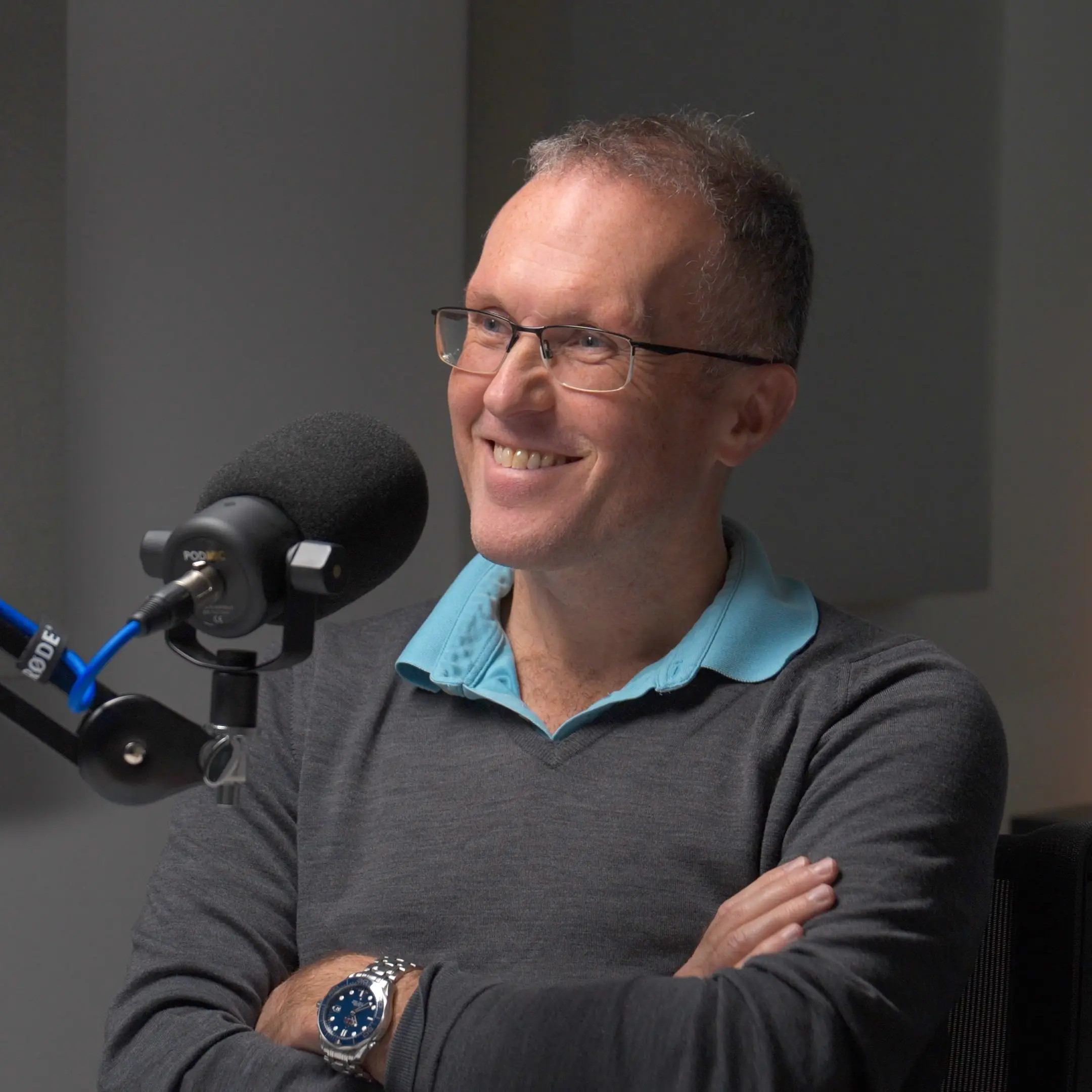

.png)
.png)

